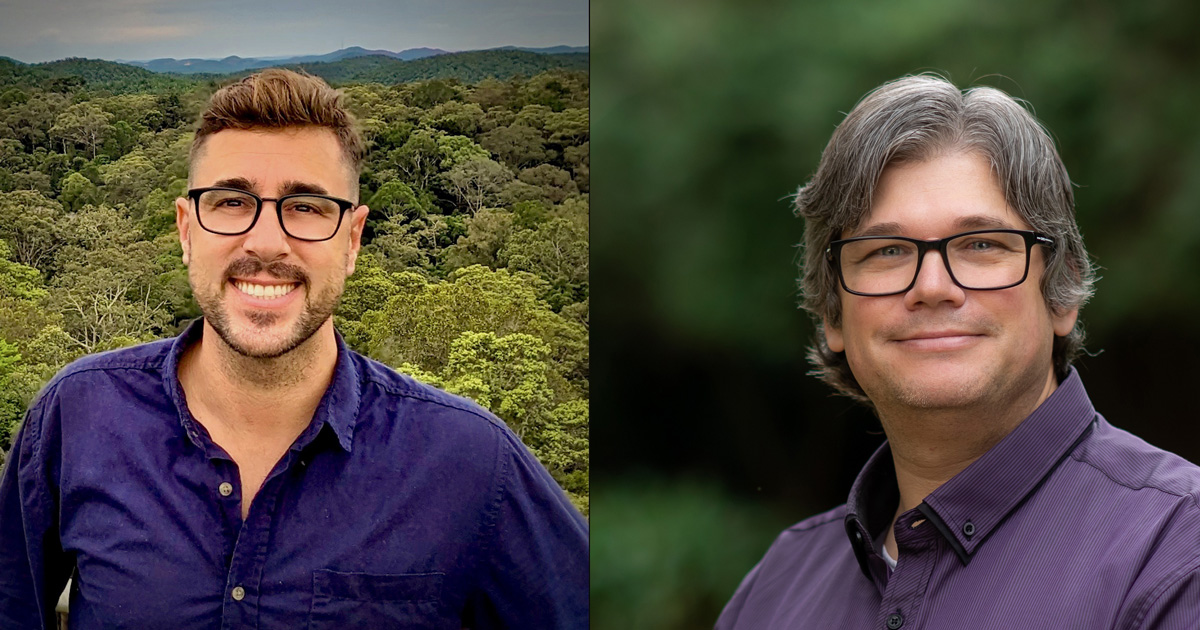
The Australian Academy of Science is pleased to announce the recipients of the inaugural round of the Australia-Scotland Fund.
Awardees are provided with a grant of up to $9,500 from the Academy, with the funding to support joint projects, knowledge sharing, and research visits between Scotland and Australia for a period of four to six weeks.
The initiative facilitates access to unique infrastructure and knowledge for Australian and Scottish early- and mid-career researchers, supporting the creation of ongoing collaborative research relationships between the two countries.
The inaugural Australian awardees are Associate Professor John Lesku from La Trobe University, and Associate Professor Matthew Luskin from the University of Queensland.
Ecotourism effects on wildlife at night
Associate Professor Lesku has received the award for his project, 'Integrating conservation biology with sleep physiology to address whether ecotourism in the Great Barrier Reef keeps wildlife up at night'.
His research explores the impact of artificial light at night (ALAN) on the sleep of wild birds; a growing concern as human development blurs the natural boundaries of day and night. Focusing on white-capped noddies nesting near a resort and research station on Heron Island, Australia, his team aims to determine if proximity to human-made lights leads to sleep loss.
Associate Professor Lesku will be collaborating with Associate Professor Davide Dominoni, from the University of Glasgow. Associate Professor Dominoni is a highly established urban ecologist and animal physiologist who researches the influences of population on the physiology and behaviour of urban animals.
Instead of invasive methods, the two researchers will measure oxalic acid levels in the birds' blood, a novel biomarker for sleep deprivation.
When asked what it meant to be awarded this grant, Associate Professor Lesku said that until now, most of their work has been done on laboratory-housed animals or in outdoor pens.
"While useful, this paints an incomplete picture of how light pollution might influence sleep, as captive animals are forced to sleep near light at night.
"This grant will allow us to study the effect of light pollution on birds in the wild, something rarely done. In this way, we can see whether birds nesting near a tropical resort, with augmented night-time light levels, have disrupted sleep relative to birds sleeping in nests farther from artificial light at night."
Autonomous biodiversity sensor networks
Associate Professor Luskin was awarded for his project, 'Developing a pipeline for autonomous biodiversity sensor networks to go from field sample to cloud to AI to data to analytics to decisions'.
His research aims to develop a fully automated, end-to-end data workflow by integrating cutting-edge environmental data collection technologies, ecological AI, and advanced statistical ecology. This initiative seeks to overcome the challenges of processing vast amounts of data from autonomous wildlife sensors, ultimately transforming how both Australia and Scotland monitor wildlife, understand interspecies interactions, and make informed decisions to address threats from invasive species and environmental change.
Associate Professor Luskin will be hosting Associate Professor Chris Sutherland, an expert in ecological statistics and population dynamics from the University of St Andrews.
"Collaboration is the lifeblood of science. International collaborations for Australian scientists can be logistically challenging given the time change and travel, and this is especially true for collaborations with Europe.
"We have acknowledged our complementary skills for years but had not been able to effectively collaborate due to the logistical challenges. We are delighted to now have an extended research trip made possible by the Australia-Scotland Fund," said Associate Professor Luskin.






